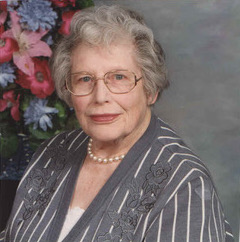
Recently I was asked to speak at the memorial service for Francess Halpenny — a true powerhouse in Canadian publishing. In the course of her long life, she was head of the Editorial Department at University of Toronto Press (UTP) during its “golden years,” general editor of the Dictionary of Canadian Biography, dean of the Faculty of Library Science (now Faculty of Information) at the University of Toronto, and associate director of UTP. She is probably the most decorated person ever in Canadian publishing, having been named a Companion of the Order of Canada and a member of the Royal Society, awarded the Molson Prize, and granted 11 honorary doctorates in all. One of the other speakers at the service declared her an “academic rock star”!
Francess hired me straight out of graduate school for my first job in publishing. Our initial interview involved a wide-ranging discussion, friendly and low key. She reputedly had an eagle eye for potential and talent: most of the people she hired went on to make lifetime careers as editors, and some reached the heights of the publishing profession in locations across Canada.
As head of the department, Francess had very high standards. She expected editors to do whatever was needed to make a text as good as it could be, whether that involved structural, stylistic or copy editing. I don’t think she ever used those terms — we were simply editors. Every morning a file containing all the previous day’s correspondence circulated among us, and we young hires quickly gleaned from the letters the senior editors sent to authors how to question, coach and communicate with them tactfully yet persuasively. As we worked on our particular manuscripts, we learned not to rewrite but to edit in a way that produced a clearer, more incisive version of the original text.
On one occasion Francess called me and another young colleague into her office and said, “I don’t want to see you two leaving the office at the end of the day with manuscripts in your bags.” She went on to explain that editing was a profession that could completely take over your life — days, evening, weekends. The trick was to apply yourself diligently during the work day, but to spend your free hours with other interests and friends, broadening your cultural base and keeping your mind fresh. That was exactly how she lived her life: she was a successful actor and director with the University Alumnae Dramatic Club, an avid supporter of concerts, museums, art galleries and her local United Church, and a well-seasoned traveller during vacation time.
Another day Francess noticed that an author had thanked me personally in his acknowledgments. She bustled into my office and told me I should edit myself out. Her reason? It takes more than the editor to produce a book. Designers, production staff, publicity and sales people are also part of the team, she said, and, if the author is grateful, he should thank the publisher. She had a good point. A few years later when I resigned from my job to go freelance and be home with my children, she grudgingly allowed that having lost my institutional connection, I would probably need those acknowledgments to establish my reputation.
Above all, Francess was a woman of great integrity who inspired huge respect in her many endeavours. Perhaps sales manager Bill Harnum put it best. Whenever Francess phoned him about some marketing matter, he immediately rose from his desk chair and stood tall: “It simply seemed the right thing to do.”
___
Previous post from Rosemary Shipton: There’s No Clarity With Editors or Authors.
The Editors’ Weekly is the official blog of Editors Canada. Contact us.
Discover more from The Editors' Weekly
Subscribe to get the latest posts sent to your email.
